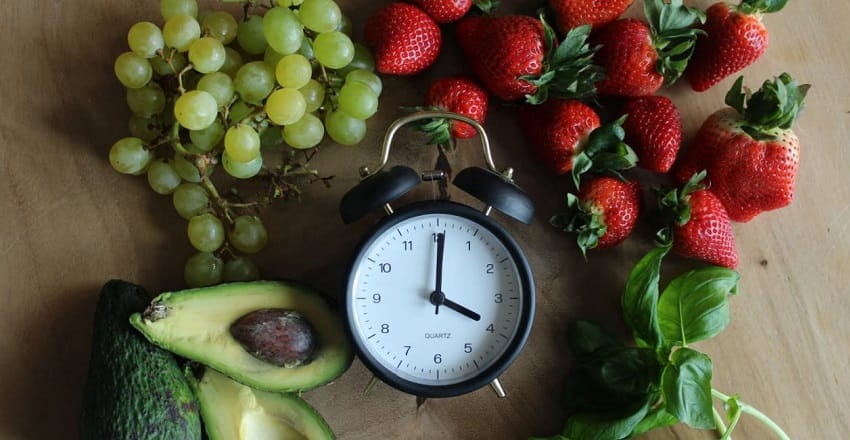Fruits are nature’s treasure trove of nutrients, energy, and healing properties. However, to truly benefit from their goodness, how and when you consume them is crucial. Ayurveda outlines specific guidelines for consuming fruits to enhance digestion, avoid toxicity (ama), and support overall well-being. Let’s explore these principles in depth.
1. Consume Fruits Separately
Fruits are quick to digest compared to other foods. When consumed alone, they break down efficiently, converting into rasa (nutritive fluid) and providing immediate nourishment. However, mixing fruits with heavier foods like:
- Milk
- Curd (Yogurt)
- Cream
…or consuming them immediately before or after meals leads to poor digestion. This mixture can cause:
- Fermentation in the stomach
- Production of Ama (undigested toxins)
- Gas, Acidity, Bloating, and Indigestion
Over time, these issues can lead to chronic disorders like joint pain and stiffness. Therefore, Ayurveda emphasizes consuming fruits as a standalone meal or snack to maintain digestive harmony.
2. Maintain a Gap Between Fruits and Meals
Always give your body time to digest fruits properly. A few key points to remember:
- Wait at least 2 hours after a meal before consuming fruits.
- Avoid fruits immediately before or after meals to prevent digestive overload.
This helps prevent the accumulation of ama and allows both fruits and other foods to digest optimally.
3. Avoid Mixing Fruits with Vegetables and Dairy
Smoothies and bowls that combine fruits, vegetables, and dairy (like milk or yogurt) are popular but not Ayurvedically recommended. The conflicting properties of these ingredients disturb the digestive process. For instance:
- Fruits are quickly digested and have a cooling nature.
- Vegetables and Dairy are heavier and require more time to digest.
Mixing them creates indigestion, bloating, and ama. Instead, consume fruits and vegetables in separate meals.
4. Time Your Fruit Consumption
Ayurveda advises eating fruits at specific times based on their nature:
- Heavy Fruits (e.g., Mango, Jackfruit) should be consumed:
- Before Meals when your hunger is strong, as they require more digestive power.
- Light Fruits (e.g., Pomegranate, Apple) can be consumed:
- After Meals, but ensure a 2-hour gap to avoid digestive conflict.
Do Not Eat Fruits at Night:
- Sweet fruits increase Kapha dosha (earth and water elements), which naturally dominate at night.
- This can lead to mucus production, sluggish digestion, and weight gain.
- During Winter (Vata season), fruits should not be consumed after 4 PM.
5. Follow the Sequence of Tastes (Rasa)
Ayurveda recognizes six tastes:
- Sweet (Madhura)
- Sour (Amla)
- Salty (Lavana)
- Pungent (Katu)
- Bitter (Tikta)
- Astringent (Kashaya)
When consuming fruits or meals, follow this order to support balanced digestion. For example:
- Start with Sweet Fruits like mango or banana.
- Follow with Sour Fruits like oranges.
This sequence helps prepare the digestive system and reduces digestive discomfort.
6. Prefer Whole Fruits Over Juices
While fruit juices may seem nutrient-dense, they:
- Lack fiber necessary for optimal digestion.
- Are more concentrated and heavy, making them harder to digest.
Ayurvedic Recommendations:
- Eat Whole Fruits to benefit from natural fiber and balanced digestion.
- Limit Fruit Juices to occasional use and consume in moderate amounts.
7. Fruits According to Your Dosha
Ayurveda recommends tailoring fruit choices based on your dominant dosha (constitution):
- Vata Prakriti (Dry, Cold, Light)
Vata individuals benefit from fruits that are:
• Sweet, Juicy, and Warming
• E.g., Cooked Apple, Banana, Coconut, Dates, Figs, Grapes, Ripe Mango, Orange, Papaya, Plums, Soaked Raisins.
Tip: Cook or soak fruits to make them easier to digest.
- Pitta Prakriti (Hot, Intense)
Pitta types need fruits that are:
• Sweet, Cooling, and Non-Acidic
• E.g., Ripe Pear, Sweet Grapes, Pomegranate, Coconut, Dates, Figs, Watermelon.
Tip: Avoid overly sour or unripe fruits, which can aggravate heat.
- Kapha Prakriti (Heavy, Moist)
Kapha types benefit from:
• Light, Astringent, and Slightly Heating Fruits
• E.g., Apple, Pomegranate, Fig, Lemon, Pear, Soaked Raisins.
Tip: Limit fruit intake and avoid very sweet or heavy fruits like mango.
8. General Ayurvedic Guidelines
- Eat Fresh, Local, and Seasonal Fruits: They align with your body’s natural rhythm and seasonal needs.
- Practice Mono-Fruit Eating: Stick to one fruit at a time for better digestion and to observe its effects on your body.
- Avoid Fruit Salads and Mixed Dishes: Combining different fruits can disturb digestion.
Summary for Optimal Fruit Consumption
- Eat fruits alone and avoid mixing them with meals, vegetables, or dairy.
- Time fruit intake wisely: avoid at night and maintain a 2-hour gap with meals.
- Tailor fruits to your dosha for better balance.
- Choose whole fruits over juices and stick to seasonal, fresh produce.
By following these Ayurvedic principles, you can enjoy vibrant health, balanced digestion, and a toxin-free body.
Contact us right now to know more!



